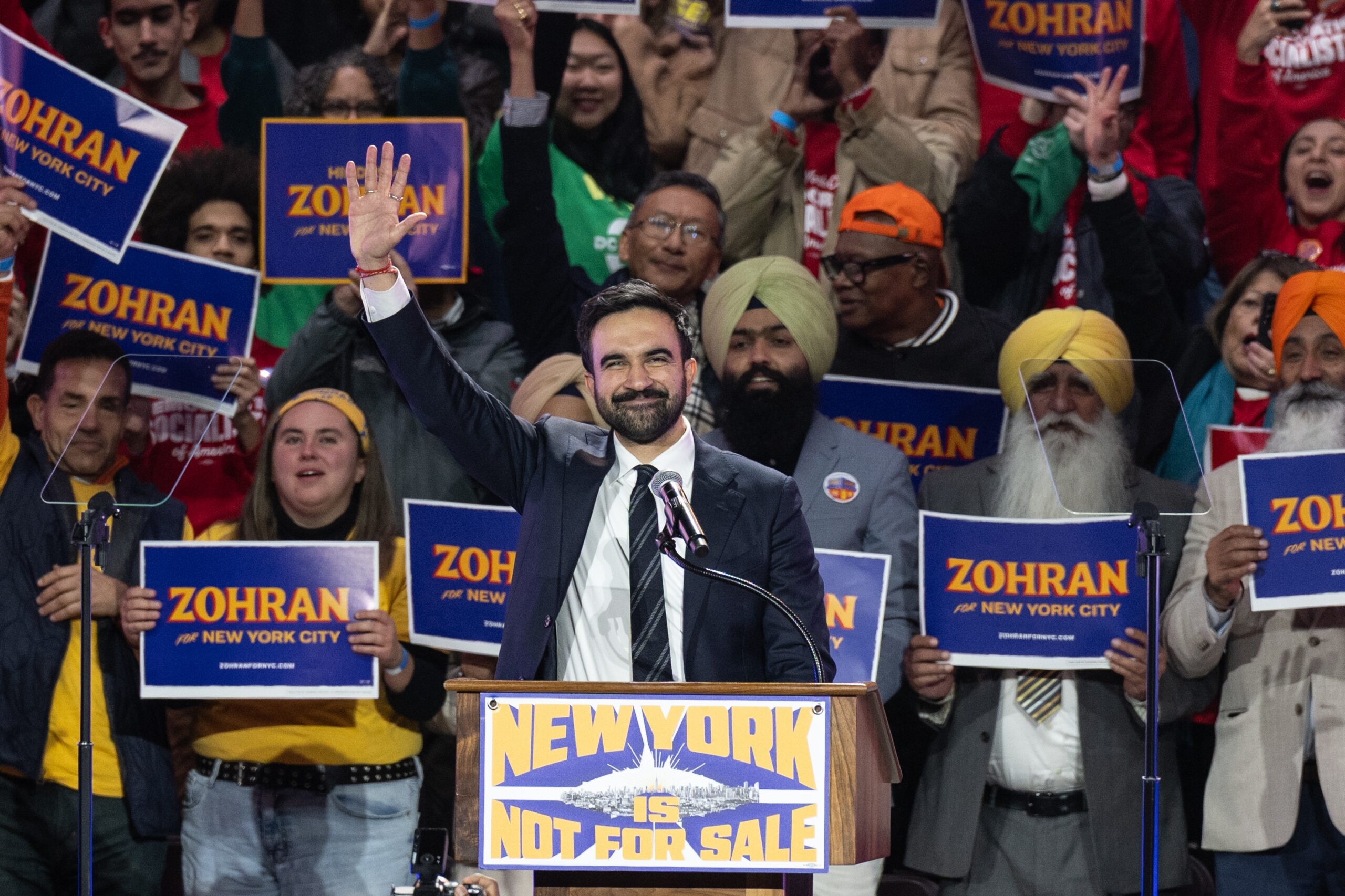Mamdani’s Mayoral Agenda and the Limits of City-Level Health Care Reform
Democratic socialist candidates notched mayoral victories on both coasts in November 2025. Seattle elected political newcomer Katie Wilson on a platform of higher wages and stronger renter protections.

Published
Author
Share
Democratic socialist candidates notched mayoral victories on both coasts in November 2025. Seattle elected political newcomer Katie Wilson on a platform of higher wages and stronger renter protections. And in the most visible race of the year, New York City chose Zohran Mamdani as its next mayor, who ran on similar promises and the message that “your struggle is ours.”
For many Americans, such commitments point naturally to one policy: universal health care. Indeed, Senator Bernie Sanders has all but fused “democratic socialism” and “Medicare for All” in the public’s imagination.
Yet Mamdani’s platform contains no single-payer proposal. His campaign barely addressed New York City’s troubled health care system, whose hospitals generate $113 billion in economic activity annually but where life expectancy still ranges from 75 in Brownsville, Brooklyn, to 86 on the Upper East Side of Manhattan. Cardiovascular mortality is twice as high in high-poverty areas and socioeconomic factors were a dominant predictor of COVID-19 outcomes in the city.
For a democratic socialist governing a city marked by dramatic health disparities, the omission of a single-payer system is striking. So what might a Mamdani mayoralty mean for the city’s health care system, if not a push for universal coverage?
Democratic Socialism and Health
Democratic socialism encompasses diverse traditions but shares one instinct: that certain basic goods are too important to entrust to the market. A democratic socialist believes that basic necessities such as food, shelter, education, and health care are prerequisites for meaningful participation in a democracy. The idealized democratic-socialist health care system is government-run, single-tiered, publicly financed, and accessible to all on equal terms. Individuals may purchase amenities, but the services that determine outcomes — physicians, diagnostics, and treatments — would be provided equally.
In this view, access to health care is a precondition for democracy. Professor Erich H. Loewy makes the point explicit: “Individuals deprived of the necessities of life … are forever at the mercy of those with full bellies … and thus cannot hope to establish let alone maintain a true democracy.” In this view, health care is not a consumer good but a requirement for self-governance.
Why Universal Coverage Is Not on Mamdani’s Platform
If a single-tiered, publicly financed system is the democratic-socialist ideal, why does it not appear in Mamdani’s platform?
The short answer may be federal preemption. The Employee Retirement Income Security Act (ERISA) broadly bars states from enacting laws that “relate to” employer-sponsored benefit plans. Because most working-age adults receive insurance through their employer, any single-payer system would necessarily displace those plans. Courts have struck down even modest reforms on this basis, and ERISA does not provide for waiver or experimentation. Even if a state has the political will to implement a single-payer system, the state faces a “nearly insurmountable structural challenge from ERISA.”
Add to this the politics. Moving to a single-tiered system requires some measure of “leveling down” because “the greatest possible degree of equality is itself a ‘primary social good.’” Budgets are finite, however, and bringing those at the bottom up to a common tier means reducing benefits for those above it. But unions protect their hard-won benefits and patients like their doctors, to say nothing of the expense: Even the most sympathetic constituents balk at multibillion-dollar proposals.
Mamdani’s quiet omission of universal coverage, therefore, may be more realism than ideology. So what does democratic socialism look like when its signature policy is out of reach?
What a Mamdani Health Care Agenda Might Be
Clues of Mamdani’s health care agenda come from his platform and the people he has elevated to senior roles, most notably Lina Khan, former chair of the Federal Trade Commission under President Biden. These choices point toward an administration that treats health care as a basic need the public sector must help secure and that seeks to reduce disparities between tiers by expanding the government’s capacity to administer care.
Mamdani’s democratic-socialist convictions are clearest in his efforts to strengthen the public tier of both health care delivery and financing. He has promised to invest in NYC Health + Hospitals, the city’s public hospital system, which would make the public system a more viable option for New Yorkers. His goal of moving 250,000 retired city union workers from private plans to traditional Medicare similarly reflects a desire to consolidate consumers into a single, publicly financed tier of insurance.
His attention to meeting basic needs also aligns with democratic-socialist philosophy. Mamdani’s broader agenda on housing, food, and childcare reflects the view that government must secure these basic needs before people can meaningfully exercise their political rights. His proposal to create “a new corps of [health care] outreach workers” extends this logic by helping residents access the city’s existing health care infrastructure.
Khan’s role as transition co-chair likewise reflects an effort to narrow the distance between tiers, particularly those created by consolidation. Although New York City has no independent authority to enforce antitrust laws, private-equity firms have described her appointment as a “warning.” The city can shine light on anticompetitive behavior that raises prices, and Khan’s presence in “Wall Street’s backyard” signals an administration intent on using every available tool to limit private behaviors that create first- and second-class tiers of services.
Conclusion
Mamdani’s campaign offered perhaps the most a democratic socialist mayor can credibly offer: a focus on public institutions and the basic economic conditions that make meaningful democratic participation possible. Mamadani’s background as a democratic socialist guides his moral vision behind that agenda, but ERISA and entrenched private markets appear to set firm boundaries. His platform reflects that reality. The cruel irony of American health care is that the more unequal and expensive it becomes, the more fiercely it resists change. Mamdani’s campaign emphasized investing in public institutions to push back against health care privation where possible, but did not overstate what the city alone can achieve.


